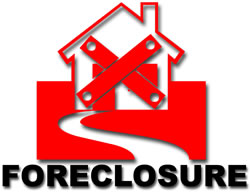Interested in REO property or a foreclosure?
Savvy consumers will turn to a seasoned pro when considering the purchase of a foreclosed property. If you have any questions about real estate in Healdsburg, California,
call me or
send me an e-mail.
What is an REO?
"REO" or Real Estate Owned are properties which have been foreclosed upon that the bank or mortgage company currently holds. This is not the same as a property up for foreclosure auction. 
When buying a property during a foreclosure sale, you must pay at least the loan balance plus any interest and other fees accrued during the foreclosure process. You must also be willing to pay with cash in hand. To top everything off, you'll receive the property 100% as is. That possibly will consist of current liens and even current residents that may require removal.
A bank-owned property, on the contrary, is a more tidy and attractive proposition. The REO property did not find a buyer during foreclosure auction. The lender now owns it. The bank will deal with the elimination of tax liens, evict occupants if needed and generally organize for the issuance of a title insurance policy to the buyer at closing.
Note that REOs may be exempt from typical disclosure requirements. For example, in California, banks do not have to give a Transfer Disclosure Statement, a document that normally requires sellers to reveal any defects they are informed of. By hiring RE/MAX - Roxanne Mercer, you can rest assured knowing all parties are fulfilling California state disclosure requirements.
Are REO properties a bargain in Healdsburg?
It is sometimes assumed that any foreclosure must be a good buy and a chance for easy money. This isn't necessarily the case. You have to be cautious about buying a repossession if your intent is to make money off of it. Even though the bank is usually eager to offload it promptly, they are also looking to minimize any losses.
 When pondering the value of REO property, carefully analyze comparable sales in the neighborhood and be sure to take into account the time and cost of any repairs or remodeling needed to prepare the house for resale. The bargains with money making potential exist, and many people do very well buying foreclosures. But, there are also many REOs that are not good buys and may lose money.
When pondering the value of REO property, carefully analyze comparable sales in the neighborhood and be sure to take into account the time and cost of any repairs or remodeling needed to prepare the house for resale. The bargains with money making potential exist, and many people do very well buying foreclosures. But, there are also many REOs that are not good buys and may lose money.
Ready to make an offer?
Most mortgage companies have a department dedicated to REO that you'll work with when buying REO property from them. To get their properties advertised on the local MLS, the lender will usually use a listing agent.
Before making your offer, you'll want to contact either the listing agent or REO department at the bank and discover as much as you can about their knowledge about the condition of the property and what their process is for accepting offers. Since banks most commonly sell REO properties "as is", it may be in your best interest to include an inspection contingency in your offer that gives you time to check for unknown damage and retract the offer if you find it. If, as a buyer, you can provide documentation proving your ability to pay, such as a pre-approval letter from a lender, your offer will be more attractive and likely be accepted. (This goes for any real estate offer.)
Once you've submitted your offer, you can expect the bank to respond with a counter offer. Then it will be your decision whether to accept their counter, or make another counter offer. Realize, you'll be working with a process that usually involves several people at the bank, and they don't work evenings or weekends. It's typical for the process of offers and counter offers to take days or even weeks.